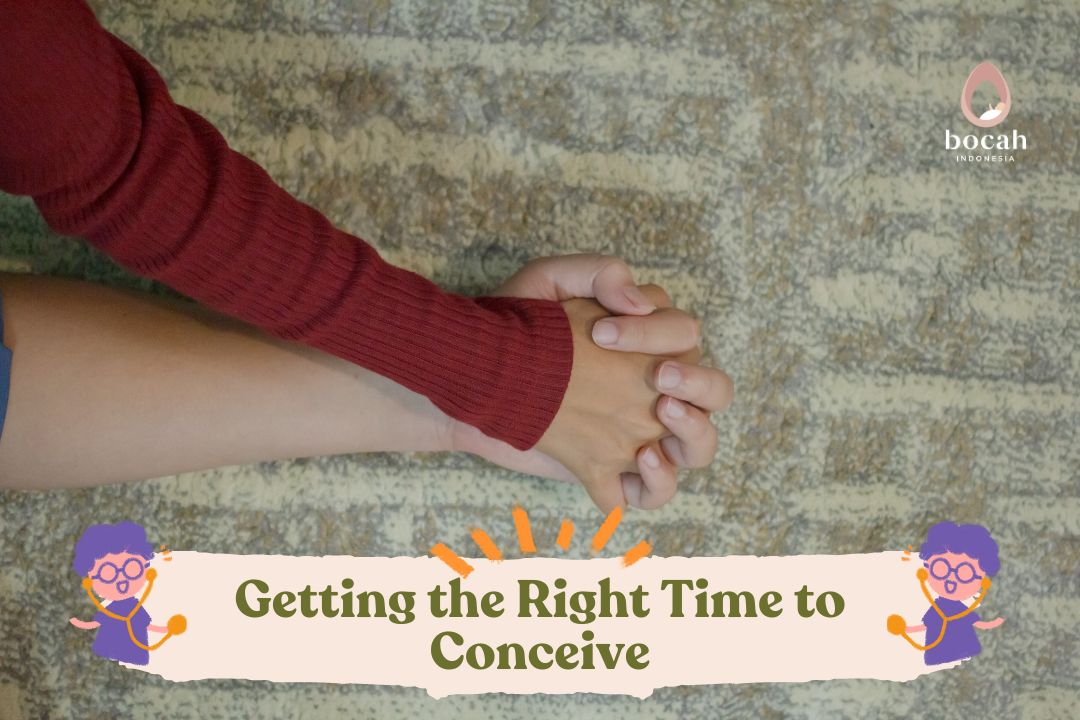When is the Right Time to Take Folic Acid

Mothers consume folic acid is very good when planning pregnancy until getting pregnant
Many mothers may be confused about when they should start taking folic acid. Because taking folic acid at the right time is crucial to support fetal development and the baby after birth.
Some people suggest that taking folic acid is better before pregnancy occurs. So, when should mothers actually take folic acid? To avoid mistakes, read the following review.
What Is Folic Acid?
Folic acid, also known as vitamin B9, is a synthetic form of folate, which is one of the B-complex vitamins. Folic acid plays a crucial role in various body functions, including red blood cell production, DNA synthesis and repair, and cell growth.
Folate assists in the formation of the fetal neural tube, which will later become the brain and spinal cord. Therefore, an adequate intake of folate in the diet of pregnant mothers is essential to prevent birth defects in babies, especially those related to the nervous system.
Tanya Mincah tentang Promil?
Natural sources of folate can be found in dark green vegetables such as spinach, broccoli, and asparagus, as well as in citrus fruits like oranges and tomatoes.
Folic acid can also be met through the consumption of folic acid supplements, such as prenatal vitamins, to ensure an adequate intake of folic acid. With sufficient intake from various sources, mothers can support the healthy development of the fetus.
When Should You Take Folic Acid?
Birth defects of the baby’s brain and spinal cord occur in the early stages of pregnancy, especially during the first 3-4 weeks after conception. Therefore, having enough folic acid in a mother’s system is crucial from the beginning of pregnancy.
Doctors generally recommend that women start taking folic acid at least one month before planning pregnancy. This is to ensure that the body has an adequate reserve of folic acid when the development of the baby’s nervous system begins.
However, the Centers for Disease Control and Prevention (CDC) recommends that all women of childbearing age take folic acid daily, regardless of whether they are planning pregnancy or not.
By following these recommendations, you can ensure that you have provided optimal protection for the baby’s development. Starting folic acid consumption early or regularly can provide the best protection against birth defects related to the baby’s nervous system.
Folic Acid Consumption Dosage
Regarding folic acid, the recommended daily dosage for all women of childbearing age is 400 micrograms (mcg) of folate. If you take a daily multivitamin, it is important to check the label and ensure that the recommended amount of folic acid is sufficient.
Here are the recommended amounts of folic acid to be consumed daily at different stages of pregnancy:
-
Dosage for those undergoing a pregnancy program: 400 mcg
-
During the first three months of pregnancy: 400 mcg
-
Four months to the ninth month of pregnancy: 600 mcg
-
While breastfeeding: 500 mcg
It is essential to follow the recommended folic acid dosage to support a healthy pregnancy and the appropriate development of the baby. Consulting with a doctor is highly recommended to ensure that your nutritional needs during pregnancy are met adequately.
Benefits of Folic Acid for Fertility
According to information from the WHO, more than 12% of women experience fertility problems. Consuming folic acid as part of a pregnancy program can help reduce ovulation problems that affect fertility.
Folic acid plays a crucial role in influencing women’s fertility, both before and after conception. Folic acid can also help prevent early pregnancy defects that are at risk of causing miscarriage.
The benefits of folic acid for a mother’s fertility also include helping the metabolism of cells throughout the body, including in the ovaries.
One study on the use of folic acid supplements in women trying to conceive, conducted by the Fertility Institute, found that folic acid intake can increase the chances of success in in vitro fertilization (IVF) programs.
Folate is one of the essential B vitamins for maintaining overall health, especially during pregnancy. It is essential to follow the recommended dosage guidelines and consult with a medical professional before taking these supplements.
Always remember that every individual has different vitamin needs, and the use of supplements should be based on appropriate medical advice. If you are a father looking for information about pregnancy programs and infertility issues, you can read more on Bocah Indonesia.
Source:
- Moussa HN, Hosseini Nasab S, Haidar ZA, et al (2016). Folic acid supplementation: what is new? Fetal, obstetric, long-term benefits and risks. Future Sci OA. 2016;2(2):FSO116. https://pubmed.ncbi.nlm.nih.gov/28031963/
- US Preventive Services Task Force (2016). Folic acid supplementation for the prevention of neural tube defects: US preventive services task force recommendation statement. JAMA. 2017;317(2):183–189. https://pubmed.ncbi.nlm.nih.gov/28097362/
- World Health Organization (2018), WHO recommendation on daily oral iron and folic acid supplementation.
- Watson, Stephanie (2022), WebMD, Folic Acid and Pregnancy, Diakses 2023.
- World Health Organization (2021). Infertility. Diakses 2023.






